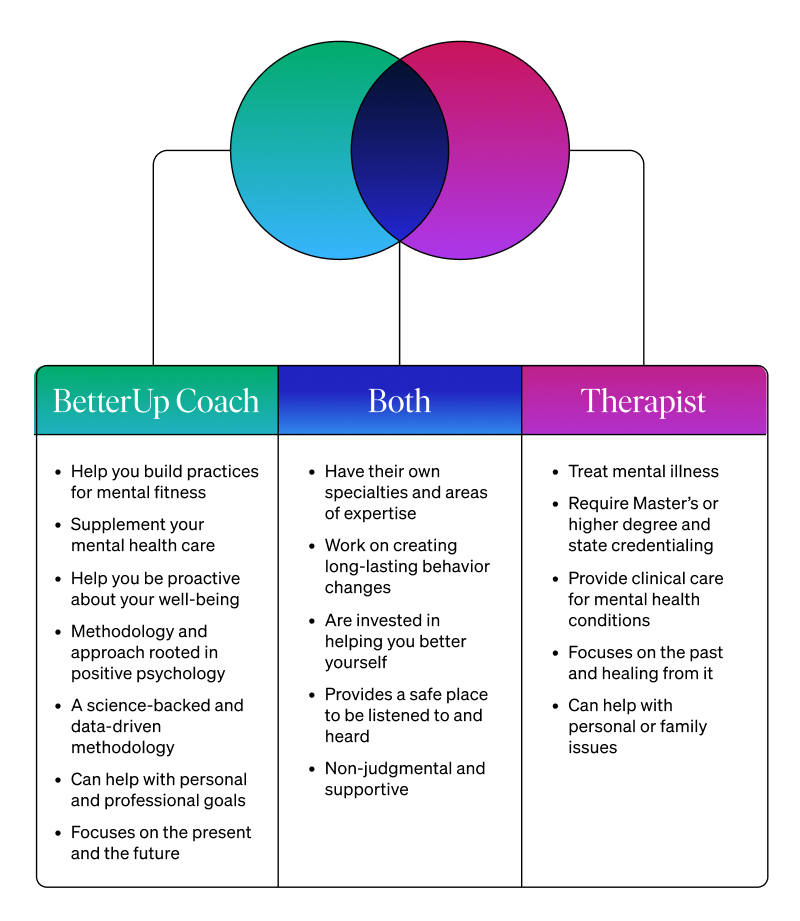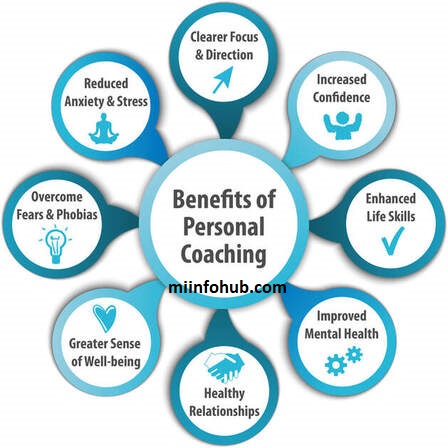In today’s world, mental health coach plays a vital role in promoting emotional well-being and resilience. Studies indicate that nearly 1 in 5 adults experience mental health issues each year, creating an urgent need for effective support systems. As awareness of mental wellness increases, individuals are seeking proactive approaches to enhance their emotional well-being, focusing on prevention and growth rather than just addressing problems as they arise. Mental health coaches empower clients by helping them set actionable goals, manage stress, and improve their overall quality of life, thus contributing to a healthier society
What Is A Mental Health Coach?
A mental health coach is a trained professional who supports clients in enhancing their mental well-being. Unlike therapists or psychologists, mental health coaches do not diagnose or treat mental health disorders. Instead, they focus on empowering clients to set and achieve personal goals, develop effective coping strategies, and foster resilience in the face of challenges. By utilizing tools such as goal-setting, mindfulness techniques, and positive reinforcement, mental health coaches guide clients in creating actionable plans for personal growth and emotional wellness. Their approach is often solution-focused, emphasizing the development of skills and strategies that lead to improved mental health and overall life satisfaction. If you are intrusted in reading about social media effects on mental health then click here.

Why Become A Mental Health Coach?
Becoming a mental health coach can be a fulfilling career choice for several compelling reasons:
Increasing Demand
The rising awareness of mental health issues has created a growing need for professionals who can offer guidance and support. As more individuals prioritize their mental well-being, the demand for mental health coaches is expected to rise. According to industry reports, the mental health coaching market is projected to grow significantly in the coming years, making this an opportune time to enter the field.
Flexible Work Environment
Many mental health coaches enjoy the flexibility of working independently, which allows for customizable hours and work locations. Whether you choose to conduct sessions in-person, over the phone, or via video calls, you can tailor your practice to suit your lifestyle and preferences. This flexibility not only enhances work-life balance but also enables you to reach clients from diverse backgrounds and locations.
Impactful Work
As a mental health coach, you have the unique opportunity to make a significant difference in people’s lives. By helping clients navigate their challenges, develop coping strategies, and achieve their personal goals, you contribute to their overall well-being and happiness. Witnessing the progress and transformations of your clients can be incredibly rewarding, reinforcing your commitment to fostering positive change in the mental health landscape.

Steps To Become A Mental Health Coach
Gain A Relevant Educational Background
While a specific degree is not mandatory to become a mental health coach, having a solid educational background can significantly enhance your credibility and effectiveness in the role. A strong foundation in psychology, social work, or counseling provides essential knowledge that will benefit both you and your clients. Here are some pathways to consider:
Bachelor’s Or Master’s Degree
Pursuing a degree in psychology, social work, or a related field can bolster your qualifications and understanding of mental health concepts. A Bachelor’s degree provides foundational knowledge about human behavior, mental health disorders, and effective communication strategies. Alternatively, a Master’s degree offers advanced training and deeper insights into therapeutic techniques and client management, making you a more competent coach.
Specialized Courses
To further enhance your expertise, consider enrolling in specialized courses focused on mental health coaching and related subjects. Look for programs that cover topics such as:
- Mental Health Coaching: Gain insights into the specific skills and techniques required for effective coaching.
- Counseling Techniques: Learn various counseling methods that can help clients navigate their challenges.
- Human Behavior: Understand the psychological principles that influence behavior, decision-making, and emotional well-being.
Obtain Certification
Earning a certification can significantly boost your qualifications and set you apart in the competitive field of mental health coaching. A recognized certification not only validates your skills but also enhances your credibility with clients. When seeking certification, look for accredited programs that cover essential topics, including:
- Mental Health Principles: Understanding the foundational concepts of mental health is crucial for effectively supporting clients. This includes knowledge about mental health disorders, wellness strategies, and the impact of mental health on overall well-being.
- Coaching Techniques: Familiarity with various coaching methodologies is vital for helping clients set and achieve their goals. Courses should cover techniques such as motivational interviewing, active listening, and goal-setting frameworks.
- Ethical Practices in Coaching: Adhering to ethical guidelines is essential in coaching. Training programs should address confidentiality, boundaries, and the ethical responsibilities of mental health coaches.
Gain Practical Experience
Experience is crucial for developing your coaching skills and enhancing your effectiveness as a mental health coach. Engaging in real-world practice not only builds your confidence but also helps you apply theoretical knowledge in practical situations. Consider the following options to gain valuable experience:
Volunteer Work
Seek opportunities with mental health organizations, community services, or non-profits that focus on mental wellness. Volunteering can provide you with hands-on experience while allowing you to contribute to your community. This may involve:
- Leading Workshops: Assisting in or leading workshops on mental health topics, stress management, or resilience-building.
- One-On-One Support: Providing support to individuals in need, helping them develop coping strategies and personal goals.
- Event Organization: Participating in mental health awareness events, which can help you network and connect with professionals in the field.
Volunteering not only enhances your skills but also demonstrates your commitment to mental health coaching.
Internships
Consider applying for internships with experienced coaches or mental health professionals. This hands-on experience can provide invaluable insights into effective coaching practices. Internships may involve:
- Shadowing Coaches: Observing sessions led by seasoned coaches to learn about their techniques and client interactions.
- Client Interaction: Gaining opportunities to engage with clients under supervision, allowing you to practice your skills in a real-world setting.
- Feedback And Mentorship: Receiving constructive feedback from mentors, which can help you refine your coaching approach and improve your effectiveness.

Develop Essential Skills
Successful mental health coaches possess a variety of skills that enable them to effectively support their clients. These skills are fundamental to building trust, fostering growth, and facilitating meaningful change. Here are some key skills to develop:
Active Listening
Active listening is crucial for understanding your clients’ needs and feelings. It involves:
- Full Attention: Giving clients your undivided focus during sessions to ensure they feel heard and valued.
- Reflective Responses: Paraphrasing or summarizing what clients say to show comprehension and encourage deeper exploration of their thoughts and emotions.
- Non-Verbal Cues: Paying attention to body language and other non-verbal signals that may indicate how clients are feeling.
Empathy
Empathy allows you to build rapport and trust with your clients, creating a safe space for open communication. This skill involves:
- Understanding Perspectives: Being able to put yourself in your clients’ shoes and appreciate their unique experiences and emotions.
- Validation: Acknowledging and validating clients’ feelings, which helps them feel understood and supported.
- Non-Judgmental Attitude: Approaching client discussions without judgment, fostering an environment where they can express themselves freely.
Goal-Setting
Helping clients define and achieve their personal goals is a core aspect of mental health coaching. This involves:
- SMART Goals: Assisting clients in creating Specific, Measurable, Achievable, Relevant, and Time-bound goals that provide clarity and direction.
- Action Plans: Collaborating with clients to develop actionable steps to reach their goals, breaking larger objectives into manageable tasks.
- Accountability: Offering ongoing support and encouragement, helping clients stay committed to their goals and celebrate their progress along the way.
Build A Professional Network
Networking can open doors and provide valuable resources. Here’s how to expand your professional connections:
- Join Professional Organizations: Becoming a member of coaching associations can provide support and opportunities for collaboration.
- Attend Workshops And Conferences: Participate in events to learn from industry experts and meet like-minded professionals.
Establish Your Coaching Practice
Once you’re ready to start coaching, consider the following steps:
- Create A Business Plan: Outline your coaching services, target audience, and marketing strategies.
- Choose Your Coaching Model: Decide whether you will conduct sessions in-person, online, or a combination of both.
- Set Up Your Workspace: Ensure you have a comfortable and private space for coaching sessions.
Market Your Services
To attract clients, you’ll need to promote your services effectively:
- Build An Online Presence: Create a professional website and utilize social media to reach your audience.
- Offer Free Workshops: Host free workshops or webinars to showcase your expertise and attract potential clients.
Stay Committed To Continuous Learning
The field of mental health coaching is always evolving. To stay relevant, commit to ongoing education:
- Attend Workshops: Regularly participate in professional development opportunities.
- Seek Feedback: Continuously collect feedback from clients to improve your coaching skills.

Real-Life Examples
John’s Journey To Mental Health Coaching
John was once a corporate executive who experienced burnout and anxiety. After seeking help from a therapist, he discovered the transformative power of coaching. Inspired by his experience, John pursued a certification in mental health coaching and started his own practice. He now helps professionals manage stress and achieve work-life balance, using techniques he learned during his own healing journey. John often shares his story in workshops, emphasizing the importance of self-care and proactive mental health management.
Maria’s Focus On Youth Empowerment
Maria, a former school counselor, transitioned to mental health coaching to focus on youth empowerment. After seeing many students struggle with anxiety and self-esteem issues, she obtained her coaching certification and began offering workshops in schools. Maria uses interactive activities and role-playing to help teenagers build resilience and set personal goals. Her programs have received positive feedback from both students and parents, and she frequently speaks at educational conferences about the importance of mental health support in schools.
Derek’s Specialization In Trauma Recovery
Derek is a mental health coach who specializes in trauma recovery. After overcoming his own traumatic experiences, he earned a degree in psychology and became certified as a mental health coach. Derek uses a combination of coaching techniques and mindfulness practices to help clients process their trauma and develop coping strategies. His approach has empowered many individuals to reclaim their lives and achieve personal growth. Derek shares testimonials on his website, showcasing the positive changes his clients have experienced.
Sophia’s Online Coaching Business
Sophia started her journey as a mental health coach after realizing the potential for online coaching during the COVID-19 pandemic. With a background in counseling, she quickly adapted her skills for the virtual space. Sophia created an online platform offering coaching sessions, resources, and community support groups. Her innovative use of technology has allowed her to reach clients from diverse geographical backgrounds, and she has built a thriving online community focused on mental wellness.
Tom’s Holistic Approach
Tom, a certified mental health coach, incorporates holistic practices into his coaching sessions. Drawing from his background in yoga and mindfulness, he helps clients manage stress and anxiety through a combination of physical and mental techniques. Tom offers workshops that blend movement, meditation, and goal-setting, fostering a well-rounded approach to mental health. His clients appreciate the unique integration of physical and mental wellness, leading to greater overall satisfaction.
Conclusion
Becoming a mental health coach is a rewarding journey that empowers you to make a meaningful impact on the lives of others. By following the steps outlined in this guide, you can equip yourself with the knowledge, skills, and experience necessary to thrive in this growing field.
Embrace the opportunity to help individuals navigate their mental wellness challenges and support them in achieving their personal goals. As you embark on this fulfilling career, remember that your contributions can lead to profound transformations in the lives of your clients. With dedication and a genuine passion for mental health, you can build a successful and impactful career in mental health coaching.


